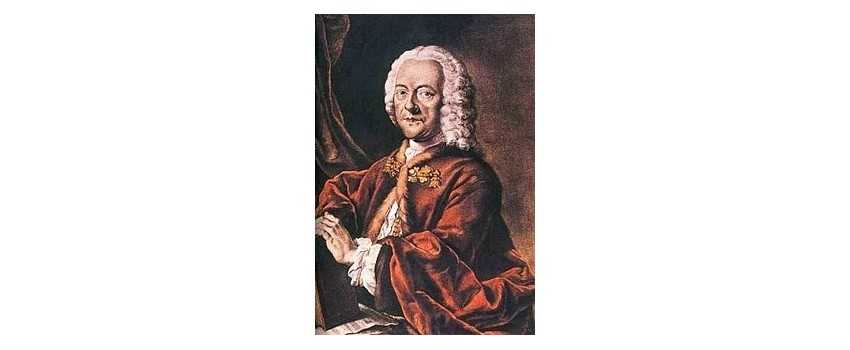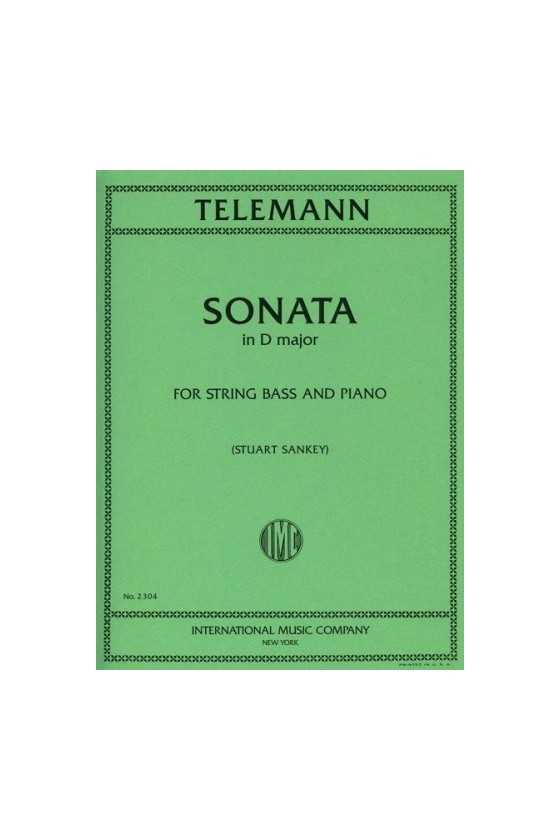Telemann, Georg Philipp
Georg Philipp Telemann (24 March 1681 – 25 June 1767) was a multi-instrumentalist and composer from Germany during the Baroque period. He became a composer against his family's desires, almost entirely self-taught in music. Telemann studied law at the University of Leipzig after studying in Magdeburg, Zellerfeld, and Hildesheim, but eventually decided on a music career. Before relocating to Hamburg in 1721, he held key positions in Leipzig, Sorau, Eisenach, and Frankfurt, before becoming musical director of the city's five principal churches. Telemann's professional life was successful, but his personal life was not: his first wife died less than two years after their marriage. Before leaving, his second wife had adulterous encounters and an enormous gambling debt.
Telemann is one of the most prolific composers in history in terms of surviving works. He was regarded as one of the leading German composers of the time by his contemporaries. He was compared favorably to his friend Johann Sebastian Bach, who named his son Carl Philipp Emanuel after him, and George Frideric Handel, whom Telemann also knew personally. He composed a significant amount of music for instructing organists under his instruction as part of his job. To complement his chorale harmonizations for 500 hymns, he composed 48 chorale preludes and 20 short fugues (modal fugues). His work incorporates national genres from France, Italy, and Germany, and he was sometimes influenced by Polish popular music. He remained at the forefront of all new musical trends, and his music bridges the gap between late Baroque and early Classical forms. He is honored at the Telemann Museum in Hamburg. Telemann was one of the most prolific significant composers of all time, with over 3,000 compositions in his oeuvre, half of which have been lost and have not been played since the 18th century. Telemann created 1,043 sacred cantatas, 600 overture suites, and forms of concertos for combinations of instruments that no other composer used between 1708 and 1750. Musicologists only supplied the first exact estimate of his works in the 1980s and 1990s, when vast subject catalogs were produced. Telemann was well esteemed by colleagues and critics alike during his lifetime and later in the 18th century.
Many theorists recognized his writings as models (including Marpurg, Mattheson, Quantz, and Scheibe), and renowned composers such as J. S. Bach and Handel purchased and studied his published works. Telemann's music was in high demand in Germany and throughout Europe, with orders coming in from France, Italy, the Netherlands, Belgium, the Scandinavian countries, Switzerland, and Spain. His popularity peaked in the early 1800s and peaked again in the early 1900s. Most lexicographers began to dismiss him as a "polygraph" who produced an excessive number of works, a Vielschreiber who prioritized quantity above quality. Such opinions were informed by Christoph Daniel Ebeling's assessment of Telemann's music, a late-18th-century critic who lauded Telemann's music while just passingly criticizing his output. Telemann's pieces were regarded as inferior to Bach's and lacking in deep religious feeling following the Bach renaissance. Compared to Handel and Bach, the Encyclopaedia Britannica lacked an article about Telemann by 1911. One of its few citations of him referred to "the vastly inferior work of lesser composers like Telemann."
Philipp Spitta and Albert Schweitzer, famous Bach biographers, condemned Telemann's cantatas before praising compositions they assumed were composed by Bach but were composed by Telemann. Telemann's last major work (Der Tod Jesu) was performed in 1832, and it was not until the twentieth century that his music began to be played again. Telemann's revival of interest started in the early twentieth century and peaked in the 1950s with the Bärenreiter critical edition. The TWV number, which stands for Telemann-Werke-Verzeichnis, is commonly assigned to Telemann's works today (Telemann Works Catalogue).


